

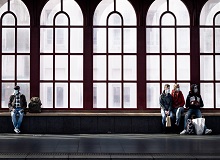
Over 1,100 church leaders in the UK sign an open letter saying they “wholly oppose” vaccine passports as a precondition to access churches.

In a UN Human Rights Council session, evangelicals ask Algeria “to allow re-opening of all churches and revise the ordinance on non-Muslim worship”. The government argues they do not comply with Algerian legislation.
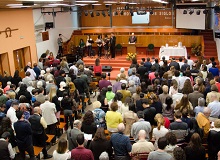
New official data show that evangelicals have multiplied eightfold in the last 20 years. The evangelical places of worship keep growing, there are over 4,200 throughout Spain.
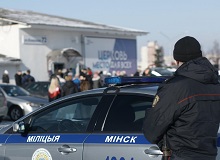
Police officers entered New Life Church in Minsk to evict the building. The evangelical community had supported pro-democracy protests. “If one member suffers, all suffer”, evangelical denominations say in a joint statement.
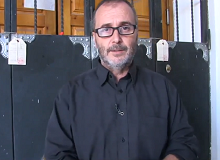
An interview with Salah Chalah, President of the Eglise Protestante d’Algérie. “2020 was a very difficult year for us Protestants, who have been deprived of our places of worship - until today”.
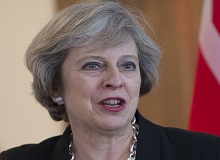
Former Prime Minister states that the measure could "set a precedent" and asks for "the right figures, the right data and the proper information".
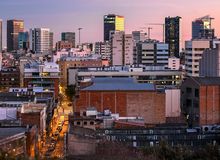
The strict requirements to regularise the situation of the places of worship in some Catalonian municipalities were discussed last summer at the UN Human Rights Council.

England and France ban worship services, strong restrictions are implemented in Switzerland. Churches in Germany, Italy and Spain, are not directly affected by the newest measures.

The Organization of American States declares 27 October as International Day of Religious Freedom. Evangelicals participated in the sessions defending the life and the family.
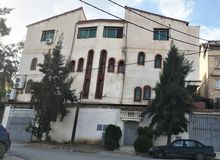
A request to reopen places of worship was recently rejected without a justification. The Algerian Protestant Church (EPA) invites Christians worldwide “to join us to pray for Algeria”.

The measures affect Madrid and nine other cities in the region. The capacity of places of worship is reduced to just one third, while leisure, restaurants or gambling venues will only be reduced to half.
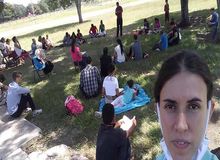
“They did not give us any option or alternative to negotiate. Rather, it was a resounding, arbitrary closure, and without any solution”, the pastors point out.
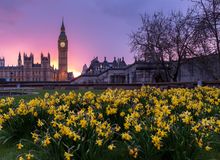
Churches following Covid-19 secure guidelines, can hold more than six people in total. “We want to make Jesus known and do lots to help rebuild this nation”, the EAUK says.
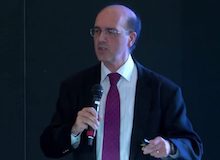
Manuel Suárez of the Spanish Evangelical Alliance analyses the importance of the WEA recommendations to the UN regarding places of worship and pastor pensions in Spain.
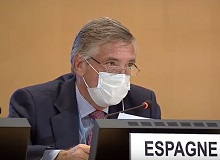
During the 44th session in Geneva, the World Evangelical Alliance denounced the “unreasonably high safety standards for non-Catholic places of worship” in Catalonia, and the need to address the problem of pensions for dozens of retired pastors.
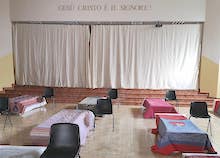
At the epicenter of the Covid-19 crisis in Italy, an evangelical church opened its building to the community, transforming it into a shelter for the homeless.

“Churches were shut, but many have never been busier”, said the United Kingdom Evangelical Alliance as the findings of the survey ‘Changing church: Responding to the coronavirus crisis’ were presented.

Is the UK government’s decision to allow ‘private prayer’ yet more evidence of rife religious illiteracy within the corridors of power?
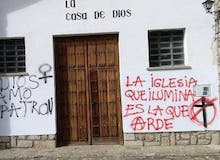
A 2019 report of the Observatory for Religious and Conscience Freedom warns that the violent attacks against places of worship have increased.
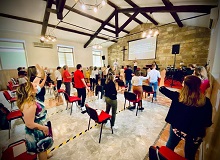
The “joy” of those who already had their first Sunday gatherings contrasts with the precaution of many others who prefer to wait some more weeks before organising in-person activities.
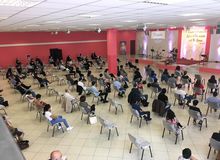
The first Sunday of reopening was May 24, but several churches waited another week. “Returning was a mixture of feelings between joy and pain”, church members said.

The German ‘land’ of Hessen re-opened church buildings on 1 May. The worship service followed hygienic and social distancing measures, but singing without face masks was allowed.
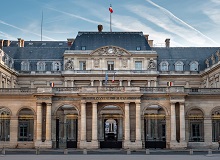
French evangelicals welcome the “affirmation of freedom of worship as a fundamental freedom” and issue a guide with practical information about the re-operning of church buildings.

Meanwhile in California, thousands of churches plan to restart public services on Pentecost Sunday, regardless of what the governor of the state says.
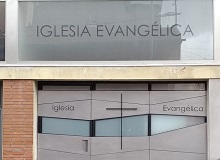
There are differences in the expected dates but evangelical organisations are already offering specific recommendations to churches.

Las opiniones vertidas por nuestros colaboradores se realizan a nivel personal, pudiendo coincidir o no con la postura de la dirección de Protestante Digital.